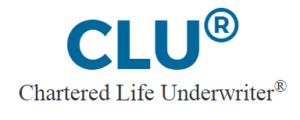What’s the alphabet soup after your financial advisor’s name?
As a consumer it can be difficult to understand what was involved in an advisor obtaining their designation/certification.
You may ask your advisor or prospective advisor what the letters after their names mean and how it helps them provide assistance to their clients. You may also visit the Financial Industry Regulatory Authority (FINRA)’s website to lookup a designation here. At the site you can learn the requirements for obtaining and maintaining the particular designation or certification.
Generally the most widely known designation is the CERTIFIED FINANCIAL PLANNER™ certification, where the CFP® mark are the letters after an advisor’s name (for example: Andrew Eddy, CFP®). You may have seen advertisements on the certification on television.
It’s also surprising to some that anyone can call themselves a “financial advisor” or “wealth manager”. These are generic terms, and do not signify any securities licenses or designations or certifications.
Below are descriptions of the current designations/certifications for myself (Andrew Eddy, AIF®,ChFC®,CLU®,CFP®):

To attain the right to use the CFP® marks, an individual must satisfactorily fulfill the following requirements:
- Education – Complete an advanced college-level course of study addressing the financial planning subject areas that CFP Board’s studies have determined as necessary for the competent and professional delivery of financial planning services, and attain a Bachelor’s Degree from a regionally accredited United States college or university (or its equivalent from a foreign university). CFP Board’s financial planning subject areas include insurance planning and risk management, employee benefits planning, investment planning, income tax planning, retirement planning, and estate planning;
- Examination – Pass the comprehensive CFP® Certification Examination. The examination includes case studies and client scenarios designed to test one’s ability to correctly diagnose financial planning issues and apply one’s knowledge of financial planning to real world circumstances;
- Experience – Complete at least three years of full-time financial planning-related experience (or the equivalent, measured as 2,000 hours per year); and
- Ethics – Agree to be bound by CFP Board’s Standards of Professional Conduct, a set of documents outlining the ethical and practice standards for CFP®professionals.
Individuals who become certified must complete the following ongoing education and ethics requirements in order to maintain the right to continue to use the CFP®marks:
- Continuing Education – Complete 30 hours of continuing education hours every two years, including two hours on the Code of Ethics and other parts of the Standards of Professional Conduct, to maintain competence and keep up with developments in the financial planning field; and
- Ethics – Renew an agreement to be bound by the Standards of Professional Conduct. The Standards prominently require that CFP® professionals provide financial planning services at a fiduciary standard of care. This means CFP®professionals must provide financial planning services in the best interests of their clients.

The AIF® designation certifies that the recipient has specialized knowledge of fiduciary standards of care and their application to the investment management process. To receive the AIF® designation, an individual must meet prerequisite criteria based on a combination of education, relevant industry experience, and/or ongoing professional development, complete a training program, successfully pass a comprehensive, closed-book final examination under the supervision of a proctor and agree to abide by the Code of Ethics and Conduct Standards. In order to maintain the AIF designation, the individual must annually attest to the Code of Ethics and Conduct Standards, and accrue and report a minimum of six hours of continuing education. The designation is administered by the Center for Fiduciary Studies, the standards-setting body of fi360.

A Chartered Financial Consultant® has completed the most extensive educational program required for any financial services credential. Each ChFC® has taken at least eight college-level courses on all aspects of financial planning from The American College, a non-profit educator with the highest level of academic accreditation. The average study time for the program is over 400 hours, and advisors frequently spend years earning this coveted distinction. Each ChFC® must also complete a minimum of 30 hours of continuing education every two years and must meet extensive experience requirements to ensure that you get the professional financial advice you need.

A Chartered Life Underwriter® has earned the premier credential in the insurance profession, representing eight or more comprehensive college-level courses covering all aspects of insurance planning, estate and retirement issues, taxation, business insurance and risk management. For more than 80 years, consumers have trusted this mark, which is conferred by The American College, a non-profit educator with the highest level of accreditation. The average study time for the program is over 400 hours and can take years to earn. Each CLU® must also complete a minimum of 30 hours of continuing education every two years and meet extensive experience requirements, ensuring the knowledge you’re counting on is both comprehensive and current.






